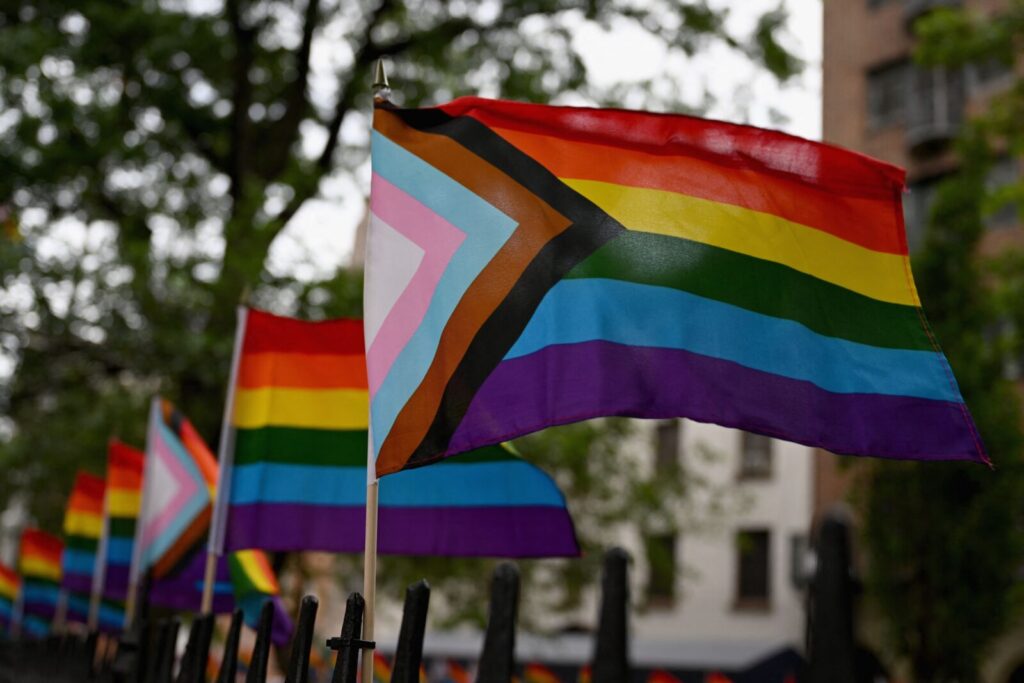Housing can be a difficult issue for many, but especially for those in marginalized communities. A group in Morgantown is working to create Project Rainbow, a shelter and housing aid organization specifically for LGBTQ community members. Reporter Chris Schulz sat down with three of the project’s board members, Cassidy Thompson, Ash Orr and Erin Shelton to discuss the group’s objectives.
Schulz: Cassidy can you tell me in your own words about Project Rainbow?
Thompson: Project Rainbow is an initiative that we came up with, some of my coworkers and I, to empower and give safety and security to queer folks in West Virginia and Appalachia. The overall goal that we have right now is to open a safe haven shelter for LGBTQIA people to come and be safe while they navigate their housing journey. A lot of our folks that we work with in that community are met with intimidation and violence and threats, and we just want somewhere safe for them to be, somewhere where they’re accepted and loved. Hopefully it blossoms into a movement and something bigger. But this is just definitely an underserved community in West Virginia and Appalachia.
Schulz: Ash, tell me about the need for Project Rainbow and housing services in the LGBT community in West Virginia.
Orr: The reality is the queer community, especially trans individuals, face a lot of discrimination when it comes to housing and finding safe, affordable housing as well as navigating finding housing while being in shelters. Our typical shelters are not always safe environments for queer and trans individuals.
What we are seeing right now happening in West Virginia, and in other rural Appalachian states is just blatant attacks on our rights to exist. Unfortunately, with these new anti-LGBTQ laws being introduced and passed, we are starting to see members of the queer community and trans community trying to figure out if they’re gonna be able to keep their jobs, if they’re going to be able to keep their housing, if they are going to have to try to find ways to keep themselves safe. If they have to leave their jobs or housing, they’re going to be unsheltered and or homeless.
I think that with this project, we are able to act as a safety net for those individuals, while also making sure that they are being provided respect and resources. West Virginia is such a unique area because we have the highest amount of trans individuals per capita. These are individuals who are facing daily discrimination and hatred, who are just trying to find a safe place to rest their head at night. I’m really glad that we as an organization, who are not only queer individuals and allies, but also current and former unsheltered individuals, we have the experience, we have the networking capabilities, we have the resources to come together to fill in these gaps that are taking place here in our state.
Schulz: Erin, what are Project Rainbow’s objectives beyond emergency or temporary housing?
Shelton: As far as what we want to do beyond emergency shelter, I think peer and professional based advocacy and support is so important for anyone who’s unhoused but especially people in the LGBTQ community, because there is just so much blatant mistreatment and discrimination that goes on in any system but the housing system, that just goes totally unchecked. A lot of times when people are actively living in crisis, they just don’t have the resources to advocate for themselves. I think that we just see this already really, really difficult process become even more difficult when you add that layer of marginalization, and potential discrimination.
We want to be the people who are able to provide that advocacy, who are able to provide that safe space, and who are able to just let folks know that they are valid, that they matter. We see a lot of younger, queer people who are unhoused, who have been kicked out by their families. We want to show people that does exist, you have a whole community of us behind you who support you. You deserve to have not just all your needs met, but you deserve to be able to survive and thrive.
Schulz: Ash, what is Project Rainbow trying to achieve immediately, in the next year?
Orr: Yes, so we are wanting to open our doors here in the next coming weeks to start serving our community. What that fundraiser is that Cassidy launched for us, is helping us get across that finish line, helping us to just get that last bit of funding in place so we can safely open the doors and know that we have a few months of support already set aside.
Schulz: Erin?
Shelton: I think our most immediate objective, like Ash said, is to get people sheltered. I think any good housing organization takes that housing first framework where we want to get people sheltered, we want to get people housed and then we’re going to continue to follow up to make sure that they are getting the quality resources that they need when it comes to social services, health care and mental health care.
Schulz: Cassidy, anything to add?
Thompson: The immediate objectives are opening the shelter, as was stated, hiring staff and not just hiring anybody, but we hope to employ and empower people who are the demographic that we’re trying to serve. We have a couple of folks who are in the LGBTQ community who have been with us from the beginning, who both faced being unhoused and they are really interested in wanting to work on this project with us. We also want to immediately set up our mental health care services and hope to add housing program services in October when that grant funding becomes available.
——
Recently, Project Rainbow announced they will be opening their doors June 1.




















 ANGELA WEISS/AFP via Getty Images
ANGELA WEISS/AFP via Getty Images